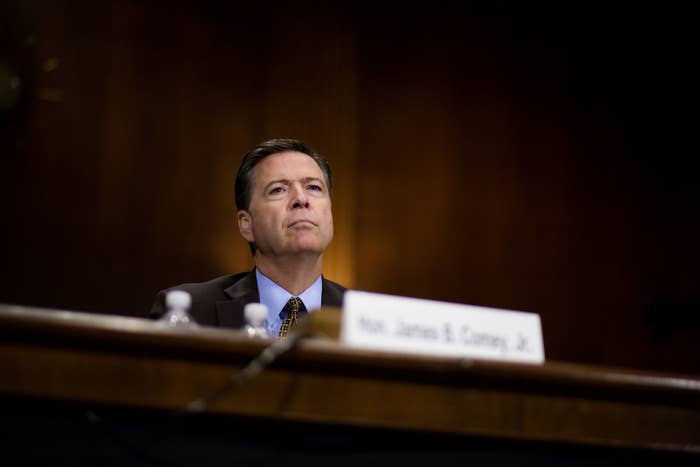
The Tuesday evening surprise announcement by the White House that President Trump fired FBI Director James Comey represented a narrow focus on a single issue, leaving many questions unanswered — or intentionally ignored.
1. The Department of Justice based the recommended firing, on its face, on an issue that would appeal to Democrats.
In the letter, Deputy Attorney General Rod Rosenstein lays out — at length — a case against Comey's treatment of Hillary Clinton that could have been written by many Democrats. That was a choice.
"[W]e do not hold press conferences to release derogatory information about the subject of a declined criminal investigation," Rosenstein wrote to Attorney General Jeff Sessions in a memorandum dated Tuesday. "The Director laid out his version of the facts for the news media as if it were a closing argument, but without a trial. It is a textbook example of what federal prosecutors and agents are taught not to do."
In his letter accepting Rosenstein's recommendation and forwarding it to Trump, even Sessions referenced the importance of "ensur[ing] the integrity and fairness of federal investigations and prosecutions."
2. The letters released on Tuesday afternoon by the White House do not mention Russia.
The closest to a mention of Russia in all of the letters released by the White House came indirectly — in Trump's letter firing Comey. In it, Trump wrote that Comey "inform[ed] me, on three separate occasions, that I am not under investigation."
Comey confirmed in March that the FBI was investigating Russia's efforts to interfere in the 2016 presidential election and whether there are any links or coordination between associates of the Trump campaign and the Russian government and/or their efforts to interfere in the campaign.
The lack of a mention of those investigations — or what will happen to them — already is raising concerns.
In a news conference shortly after the decision was announced, Senate Minority Leader Chuck Schumer asked, "Were these investigations hitting too close to home for the administration?"
3. Does the Justice Department consider this firing to be related to any investigations into the presidential campaigns?
The letter to Trump asserting that it was "essential" that there be "new leadership" at the FBI came from Sessions.
Sessions, however, has previously announced that he would recuse himself from all decisions relating to any investigations of the presidential campaigns.
Specifically, on March 2, Sessions announced, "I have decided to recuse myself from any existing or future investigations of any matters related in any way to the campaigns for President of the United States."
The Clinton email investigation obviously occurred during the campaigns, although the part at issue in Rosenstein's letter related to the treatment of her emails during her time at the State Department — not the hacking of Clinton campaign emails.
A Justice Department spokesperson did not immediately respond to a request for comment on whether Sessions considered the firing unconnected to any campaign-related investigations.
4. What comes next?
The only other time an FBI director was fired, Bill Clinton was president and the FBI director was William S. Sessions.
In that situation, though, "a harsh internal ethics report" had been released six months earlier, the New York Times reported at the time, and Sessions had turned down the opportunity to resign.
Here, on the other hand, Comey was in Los Angeles on a work-related trip when he received word of his firing.
The acting director, under the FBI's order of succession, is the FBI's deputy director, Andrew McCabe. Others follow, as needed, per a 2007 presidential memorandum.
When Clinton fired FBI Director Sessions, news of his intended nominee to replace Sessions was reported almost immediately: Clinton's pick was a sitting federal judge, Louis Freeh. Clinton had already met with Freeh the week before he fired Sessions, and the announcement came in a Rose Garden ceremony the day after Sessions' firing.
In contrast, the Tuesday statement from the Trump White House noted, "A search for a new permanent FBI Director will begin immediately."
